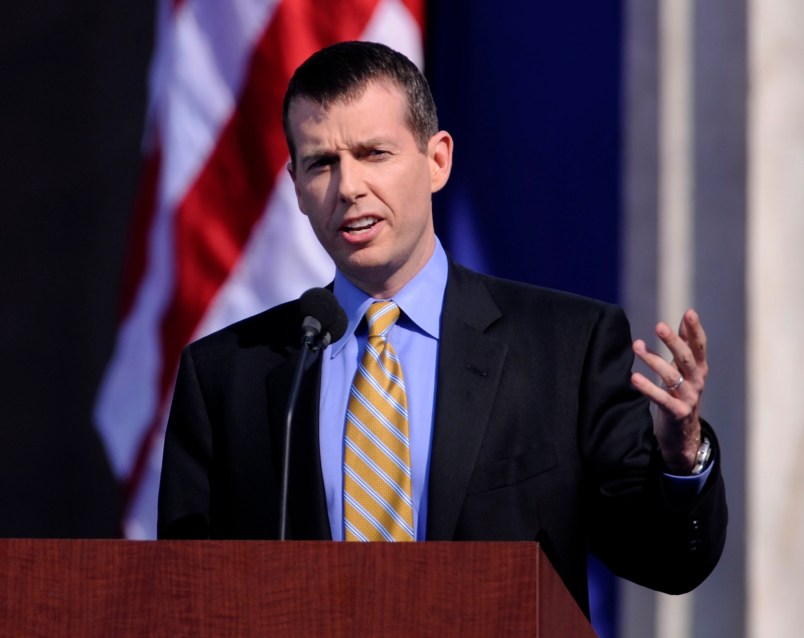In a new book recounting the campaign, Obama campaign manager David Plouffe tells the story of how President Obama and his advisers whittled down a list of candidates — which included Hillary Clinton — to just three names: Sen. Joe Biden, Sen. Evan Bayh and Virginia Gov. Tim Kaine.
In an excerpt of The Audacity to Win released to Time, Plouffe recounts his surprise that Obama was seriously considering Clinton as his number two.
“I still think Hillary has a lot of what I am looking for in a VP,” Obama told Plouffe. “Smarts, discipline, steadfastness. I think Bill may be too big a complication. If I picked her, my concern is that there would be more than two of us in the relationship.”
And, Plouffe writes, Clinton supporters who wanted her as vice president should have been grateful she was considered.
“Some in the Clinton orbit thought we gave Hillary short shrift. My view is that any serious consideration was somewhat surprising given all the complications and the toxicity during the primary campaign.”
In the end, Obama had Plouffe and adviser David Axelrod met with the final three candidates. Kaine told them all he wanted was to get Obama elected. Bayh was reasoned and level.
Biden spoke in a rambling monologue for the first 20 minutes of the meeting.
“Ax and I couldn’t get a word in edgewise,” Plouffe writes. Biden talked about “why he didn’t want to be VP (‘The last thing I should do is VP; after 36 years of being the top dog, it will be hard to be No. 2’); why he was a good choice (‘But I would be a good soldier and could provide real value, domestically and internationally’)” and many other things.
“It confirmed what we suspected: this dog could not be taught new tricks,” Plouffe writes.
But even though Biden’s potential lows were much lower than Bayh’s — he “could cause us real pain” — he could also “reach higher heights.”
“Seeing Bayh right after Biden provided some interesting contrasts and comparisons. Listening to Bayh talk, I thought, There’s no way this guy will color outside the lines. Biden may cross them with too much frequency,” Plouffe writes.
Kaine, with his lack of foreign policy experience, was at the bottom of the list. After Plouffe and Axelrod briefed Obama on their meetings, the future President still wasn’t sure.
“It’s a coin toss now between Bayh and Biden,” he told his advisers, “but Kaine is still a distinct possibility.”
In the Time excerpt, Plouffe also discusses Obama’s well-received race speech, a response to the Rev. Jeremiah Wright story, and his reaction to Sen. John McCain’s choice of running mate.
When Sarah Palin was announced, Plouffe and others blasted out an email attacking Palin’s lack of experience. Obama was less than pleased.
“We shouldn’t have put out … that statement,” Obama said to Plouffe. “I want to put out another statement that simply welcomes her to the race, and I’ll call her and congratulate her when I land.”
Plouffe writes that he didn’t want to look like they were backtracking. He urged Obama, “Don’t throw the campaign under the bus.”
“But when he took a few questions from the press later that day, he proceeded to drive the bus right over us,” Plouffe writes, by blaming the campaign’s “hair triggers.”
Plouffe stands by the original statement.
“Despite our clumsiness, I still thought we had nailed, in the predawn hours, what this pick would mean over time.”






